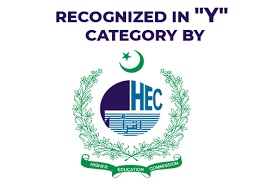Islamic Finance Education and the Curriculum of Deeni Madaris (Religious Seminaries)
An Exploratory Study
Abstract
 Abstract Views: 301
Abstract Views: 301
Sharī‘ah governance is a unique element of the Islamic financial system in which Ulama (Islamic scholars) play a fundamental role. Deeni Madaris (religious seminaries) are the major channels for the education of the Ulama. This study analyzed and compared the syllabi of Deeni Madaris (religious seminaries) taught in Dars-e-Nizami (full-time) and Takhasus fil Fiqh /Takhasus fil Ifta (specialization in Islamic jurisprudence and Fatwa granting process) as offered by different schools of Islamic thought regarding Islamic finance education. A survey was conducted among the academics of these religious institutions regarding the structure of the syllabus followed in their respective institutions. The questionnaire focused on exploring the respondents’ opinions about the status of the curriculum concerning Islamic finance and their efforts for the inclusion of contemporary studies in it, specifically those regarding Islamic finance and jurisprudence issues.
Downloads
References
Ahmad, M., & Amin, H. (2016). A documentary history of Islamic education in Pakistan (1st ed.). Islamabad: Iqbal Internation Institute for Research and Dialogue, (IRD), International Islamic University.
Ayaz, M., & Mansoori, M. T. (2017). Strengthening corporate governance regime for Islamic banks in Pakistan : Focusing on the principles of Am ana. Journal of Islamic Business and Management (JIBM), 7(2), 178–196.
Ayub, M. (2009). Madaris education and human capital development with special reference to Pakistan. Islamic Economic Studies, 16(1–2), 1–35.
Ayub, M. (2016). Focusing on Sharī’ah governance in regulating the Islamic banking institutions. Journal of Islamic Business and Management (JIBM), 6(2), 7–18.
Ayub, M., Khan, K., Rashid, A., Shahzad, M. A., & Ur-Rehman, D. H. (2019). Enhancing the competence and effectiveness of Sharī‘ah advisory boards: Case of Islamic banking institutions in Pakistan. Journal of Islamic Business and Management (JIBM), 9(1), 45–66. https://doi.org/10.26501/jibm/2019.0901004
Center for Excellence Islamic Finance (CEIF). (2018). Country Report on Islamic Finance Education in Pakistan. Peshawar: Author.
Durkheim, E. (1969). L’evolution pedagogique en France. Paris: Presses Universitaires de France.
Hasan, Z. (2009). Islamic finance education at the graduate level current state of and challenges. Islamic Economics Studies, 16(1), 1–29.
Islahi, A. A. (2019). Teaching Islamic finance in madaris – need, difficulties and solutions. Jeddah, Saudi Arabia: Islamic Economy Institute, King Abdulaziz University.
Postiglione, G. A., & Lee, W. O. (1997). Schooling and the changing socio-political setting: An introduction. In G. A. Postiglione & W. O. Lee (Eds.), Schooling in Hong Kong: Organization, teaching and social context. Hong Kong: Hong Kong University Press.
Shahzad, M. A. (2015). Shari’ah governance for Islamic financial institutions : A comparative study of Pakistan and Malaysia. Paper presented at the 1st International Conference on Business and Management Research (ICBMR-2015). Mirpur University of Science & Technology, Mirpur AJ&K. https://ssrn.com/abstract=2876091 DOI: https://doi.org/10.2139/ssrn.2876091
Shahzad, M. A. (2016). Financial institutions and Shari’ah advisory: Need, responsibilities and regulations (Malyaati Adaray aour Sharī‘ah Advisory Board: Zaroorat, Zumidarian aour Zawabat Tanqidi Jaiza) [Book Review]. Quarterly Journal Fikr-O-Nazar, 54(1–2), 234–241. https://ssrn.com/abstract=2928522
Shahzad, M. A., & Khan, R. (2019). External Sharī’ah Auditors in Islamic banking and finance industry. Karachi: Institute of Chartered Accountants of Pakistan. https://ssrn.com/abstract=3478878
Shahzad, M. A., & Rehman, D. H. (2017). Shari’ah supervision in contemporary Islamic banking institutions: An analytical study. Quarterly Journal Fikr-O-Nazar, 54,(4), 111–142. https://ssrn.com/abstract=2891044
Shahzad, M. A., Saeed, S. K., & Ehsan, A. (2017). Shari‘ah audit and supervision in Shari‘ah governance framework: Exploratory study of Islamic banks in Pakistan. Business & Economic Review, 9(1), 103–118. https://doi.org/10.22547/BER/9.1.6 DOI: https://doi.org/10.22547/BER/9.1.6
State Bank of Pakistan. (2014). Shariah governance framework for Islamic banking institutions. Karachi: Author. Retrieved from http://www.sbp.org.pk/ibd/2015/C1.htm
State Bank of Pakistan. (2008). Guidelines for Shariah compliance in Islamic banking institutions. Retrieved 25 July 2018, from www.sbp.org.pk/ibd/2008/C2.htm
State Bank of Pakistan. (2018). Shari’ah governance framework for Islamic banking institutions. Retrieved 26 June 2018, from http://www.sbp.org.pk
State Bank of Pakistan. (2020). History of Islamic banking in Pakistan. Retrieved from http://www.sbp.org.pk/IB/abt-his.asp
Tahir, S. (2009). Islamic finance: Undergraduate education. Islamic Economics Studies, 16(1&2), 1–29.
Authors retain copyright and grant the journal right of first publication with the work simultaneously licensed under a Creative Commons Attribution (CC-BY) 4.0 License that allows others to share the work with an acknowledgement of the work’s authorship and initial publication in this journal.












